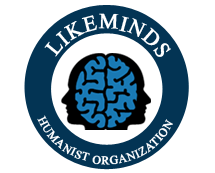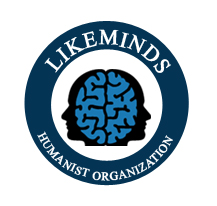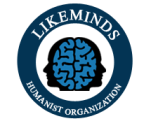Humanism
Definitions
Humanism is a progressive life stance that, without supernaturalism, affirms our ability and responsibility to lead meaningful, ethical lives capable of adding to the greater good of humanity.
- American Humanist Association
Humanism is a rational philosophy informed by science, inspired by art, and motivated by compassion. Affirming the dignity of each human being, it supports the maximization of individual liberty and opportunity consonant with social and planetary responsibility. It advocates the extension of participatory democracy and the expansion of the open society, standing for human rights and social justice. Independent of supernaturalism, it recognizes human beings as a part of nature and holds that values - be they religious, ethical, social, or political - have their source in human experience and culture. Humanism thus derives the goals of life from human need and interest rather than from ideological or theological abstractions, and asserts that humanity must take responsibility for its own destiny.
- The Humanist Magazine
Humanism is intended to give a view of life that is based upon our known truths, as validated by our scientific method of learning about our world. One of the basic tenets of Humanism is that our knowledge is only tentative; as truth unfolds through discovery and research, generally using the scientific method, our beliefs and religious views should also grow and continually adapt to the changing world in which we live. If you were raised on a deserted island, without authorities telling you what you should believe, an intelligent person would naturally acquire the philosophy of Humanism on their own. Humanism does not require faith in order for our own lives to have purpose; and for us to be able to live a good life. However, all healthy people have a natural spiritual awe of our universe. People may label their reverence for life however they wish. The point is that these are issues everyone is biologically compelled to reconcile for themselves.
Recognizing that it does little good to challenge another’s beliefs, Humanists accept that each person is entitled to live their own life as they choose - at least until they attempt to limit the rights, or to challenge the beliefs of others. The only valid way to change another’s belief is to provide acceptable non-threatening opportunity for the introduction of new ideas that are testable in reality so that a person’s view of life may grow. Only non-threatening education will expand upon a person’s view of their own truths. However, to be effective, people have to be receptive to another view. Our attitude must be open and receptive for new ideas to germinate that may then ultimately be accepted.
Humanism does not intend to contest anyone else’s faith, but Humanists do affirm that people can live a good life based exclusively upon current empirical knowledge without a need for ascertaining our own truths by having to rely upon dogmatic faith; or to base our life on earth in search for a life after death to the extent that it impinges upon our well-being in the here and now. Humanism is one of those philosophies for people who think for themselves. There is no area of thought that a Humanist is afraid to challenge and explore.
Humanism is a philosophy of compassion. Humanist ethics is solely concerned with meeting human needs and answering human problems - for both the individual and society - and devotes no attention to the satisfaction of the desires (especially those demonstrably opposed to human welfare) of supposed theological or ideological entities.
Notwithstanding, Humanists recognize that intuitive feelings, hunches, speculation, flashes of inspiration, emotion, altered states of consciousness, and even religious experience, while not practical means to acquire knowledge, remain useful sources of ideas that can lead us to new ways of looking at the world. These ideas, after they have been assessed rationally for their usefulness, can then be put to work, often as alternative approaches for solving problems.
Humanism is, in sum, a philosophy for those in love with life. Humanists take responsibility for their own lives and relish the adventure of being part of new discoveries, seeking new knowledge, and exploring new options; instead of finding solace in prefabricated answers to the great questions of life. Humanists enjoy the open-endedness of a quest and the freedom of discovery that this entails.
- Likeminds Humanist Organization
Knowledge, value, meaning and ethics
A humanist is someone who recognises that we, human beings, are the most curious and capable curators of knowledge in the known universe. To gain knowledge, we must use our reason and experience to understand the world. And we may create or partake of the great artistic fruits of humankind to enhance our emotional palettes, deepen our empathy and enrich our understanding. But we reject any reliance on blindly received authority, or on dogma, or what others may claim is divine revelation (as these are often inconsistent, contradictory and impracticable).
A humanist is someone who finds value in themselves and each other, respecting the personhood and dignity of fellow human beings, not necessarily because we are made in the image of a supreme being, but because of what we are: a sentient, feeling species, with value and dignity inherent in each individual.
There is no reason to believe that “meaning” has to come from the metaphysical. If you can write a sentence on paper which isn’t nonsense, then you can create meaning. We make our own purposes, tell our own stories, set our own goals. This gives life meaning.
- International Humanist and Ethical Union
Being a Humanist
If you are a humanist, or are just discovering and exploring the idea, you are invited to read more about LikeMinds' publications as an individual supporter to learn about their work, or as a first step to getting more information about their Humanist initiatives.


